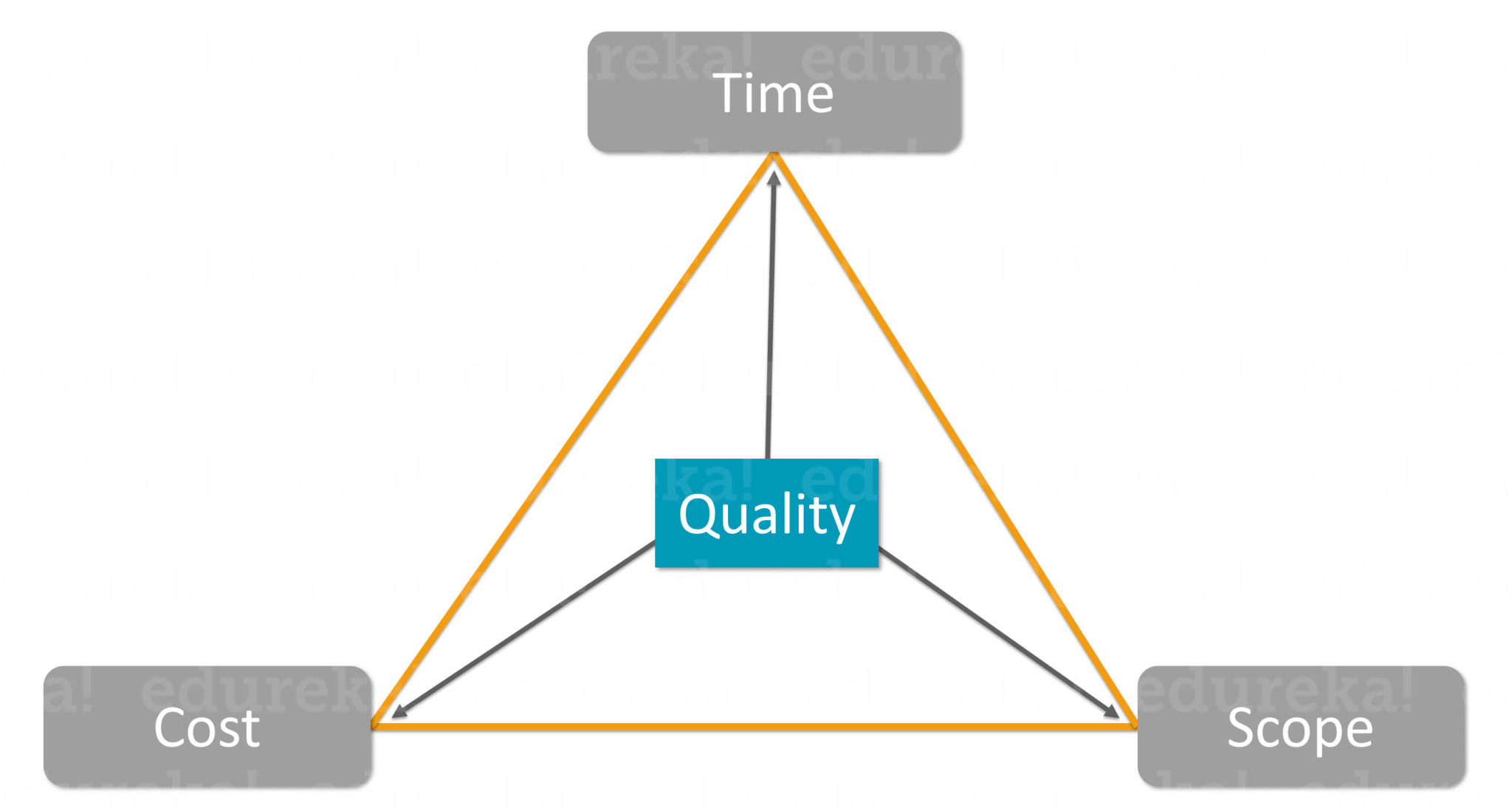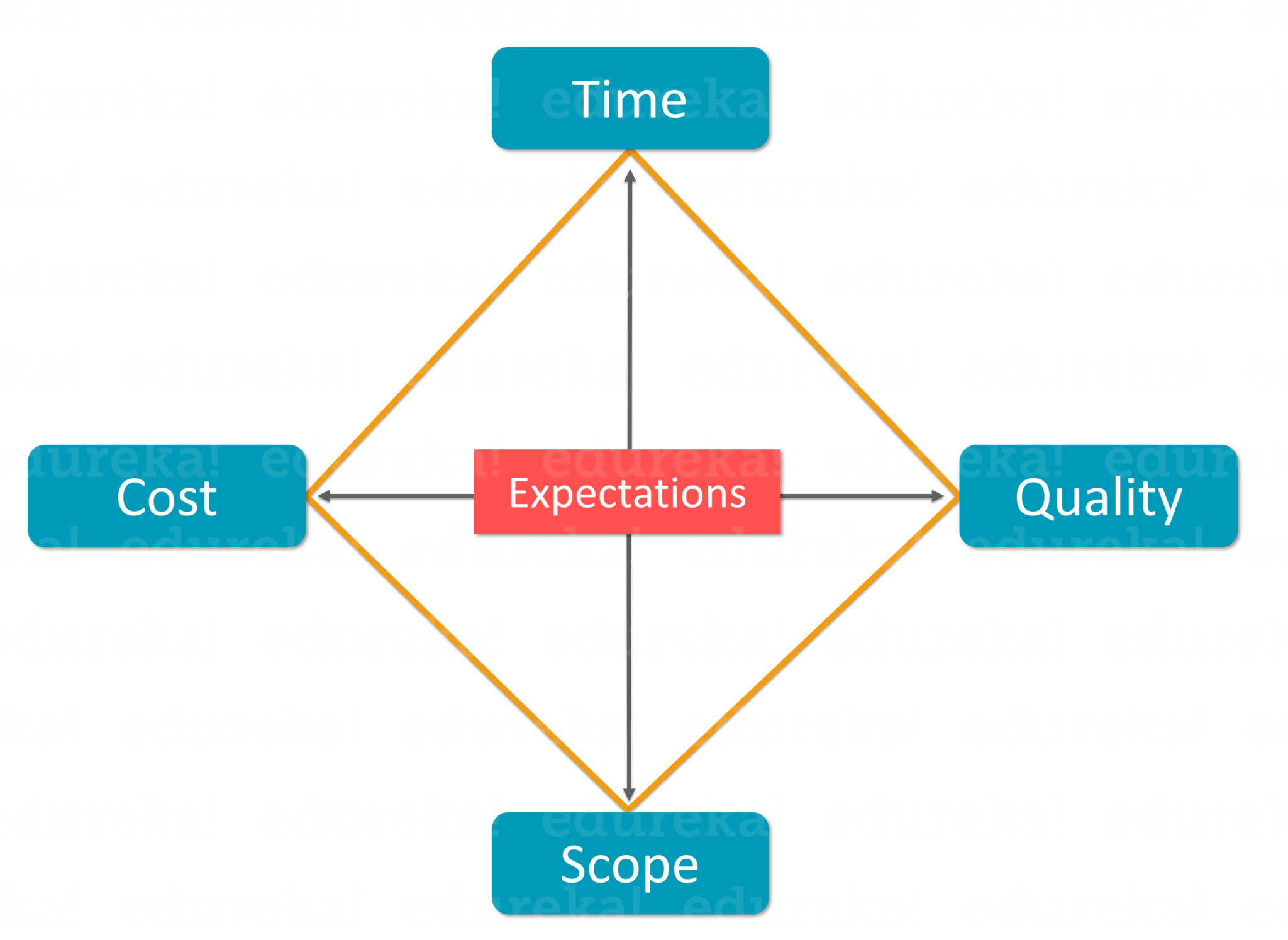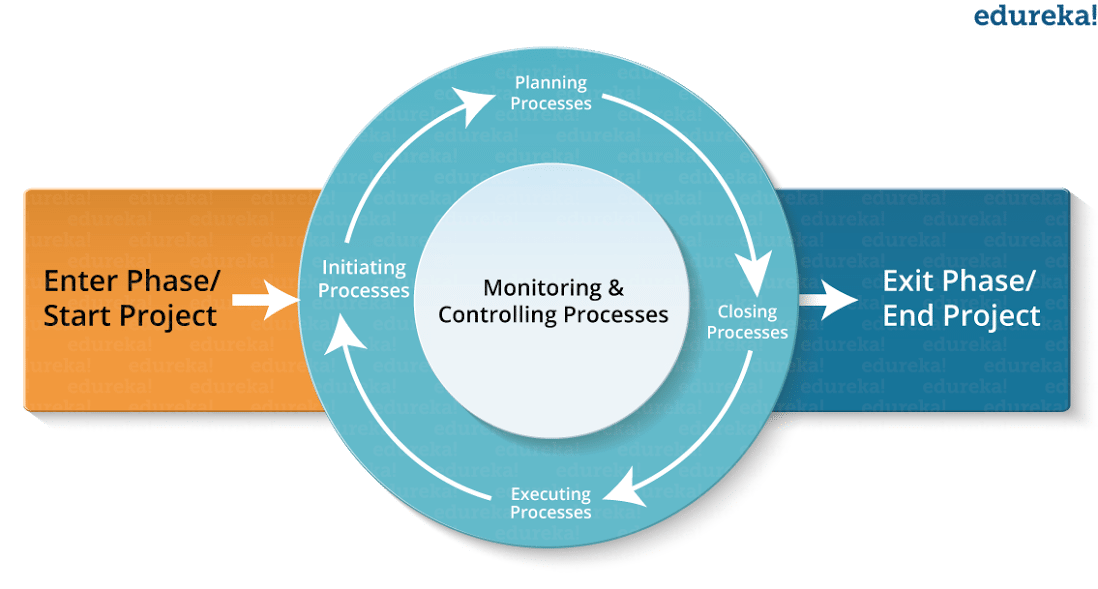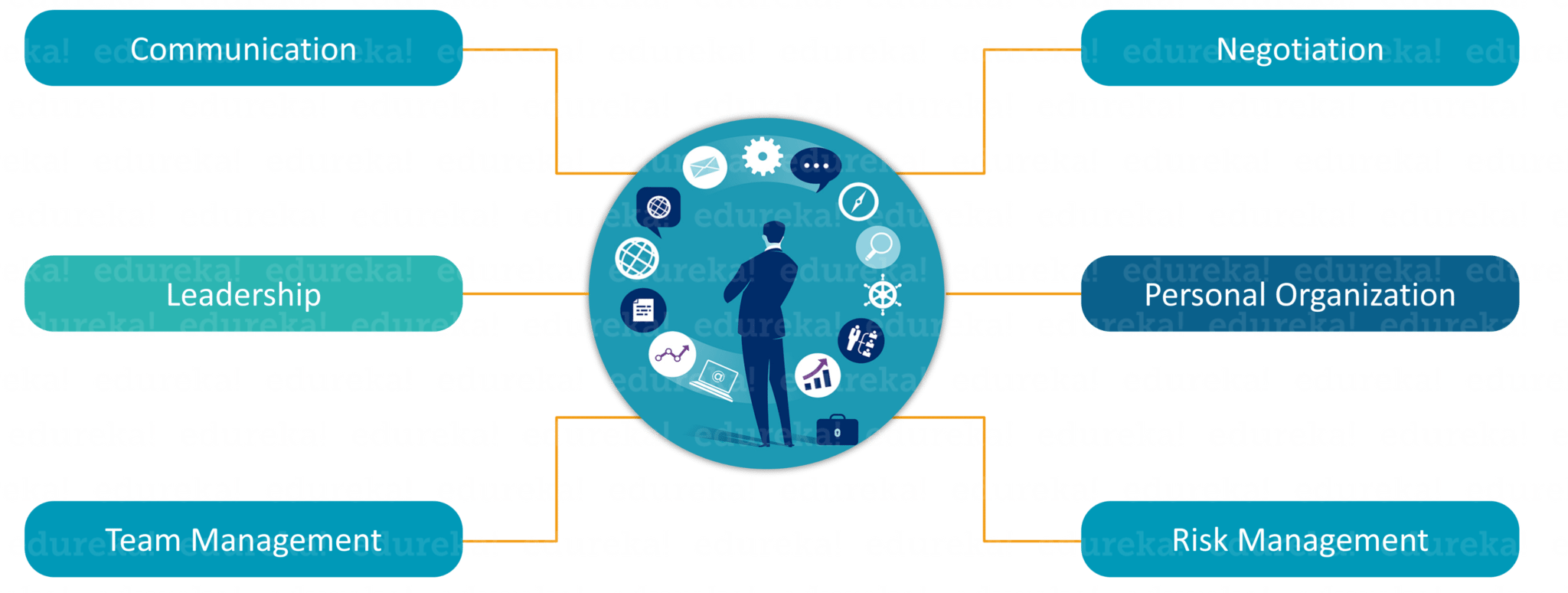PMP Certification Training
- 86k Enrolled Learners
- Weekend/Weekday
- Live Class
Risks and uncertainties are an integral part of any project, which decides its success or failure. To minimize the risk and increase the success rate, a systematic process is required, which will be controlling the project development from its conception till its delivery. Such a practice is called Project Management. You can learn more about it through the PMP Course. This Project Management article will give you a complete insight of this process and various other concepts related to it.
Before I explain what is project management, first you must know, what actually a project is.
A project is a temporary endeavor that is undertaken to produce a unique product or solution. By temporary I mean, it has a definite beginning and ending whereas unique means that the final product must be specific to a project. A project that doesn’t have these properties can be harmful to your organization as it will be eating up your time, space and other resources.
But, now you might ask, why a project starts in the first place?
Well, to answer this question, I have listed down few points:
With the question being answered, the next question that will arise is, why do the projects end? Well, there can be only two situations for a project to end:
I hope this gives you a clear context of a project. So, now let’s move on to our next topic, i.e., Project Management.
Find out our PMP Training in Top Cities/Countries
| India | Other Cities/Countries |
| Bangalore | UK |
| Hyderabad | US |
| Pune | Canada |
| Chennai | Australia |
| Mumbai | Singapore |
| Kolkata | Saudi Arabia |
Project management is the discipline that helps you in implementing various processes, methods, knowledge, skills, and experience for achieving the objectives of a unique project.
One thing that you need to understand here is, project management is nothing like usual management. One key factor which differentiates these two is that project management has a final deliverable and a definite timeline whereas management is an ongoing process. Enroll in the Project Management Masters Program to become the master!
Projects have always had to adapt to market changes. In past project management followed a “Triple Constraints” or “Iron Triangle” concept to bring about this adaption. It was a combination of three key components which acted as the most significant restrictions on any project. Each of the constraints formed the vertices of the triangle with quality as the central factor:


However, this was a traditional method, which gave way to a new constraint model called “Project Management Diamond“. In the new model, there are 4 vertices (time, cost, scope, quality) along with customer expectations as a central theme. You might be thinking, why do we need a new constraint? Well, this factor was much needed as no two customers have the same expectation, thus you have to be specific about the expectation to deliver the optimum product.
Now, that you are familiar with project management, let’s find out few of the advantages of implementing it.

Now, let us continue with this project management blog and find out what are the various phases of project management.
Since the entire process of directing and controlling a project can be hectic and cumbersome, it has been broken down into 5 simple phases, which are also known as process groups. This helps in structuring the efforts and simplifying them into a series of logical and manageable steps. Moreover, these phases wrap together the processes that often operate around the same time on a project, or with homogeneous inputs and outputs. These groups are:
Related Learning: Importance of Project Management!
Enrolling in a PRINCE2 course can provide valuable insights into one of the most renowned project management methodologies, helping professionals navigate these phases with precision and efficiency.

Let’s now dive a little deeper into project management and find out the various knowledge areas and processes mapped into these process groups.
Above mentioned knowledge areas are formed by grouping the 47 processes of project management. Below image depicts all the processes and their respective Knowledge Areas.

In the next section of this Project Management blog, let’s find out what skills are required to become a project manager.
Related Learning: Key Characteristics of Project Management
By now you know that project management is a prolonged process and requires proper planning, plotting, and direction. But who is responsible for leading a successful project from its conception to execution?
Well, the sole person responsible for the entire process of project management is the Project Manager. And trust me, this surely is not an easy job. To become a project manager, you need years of experience and hard work. Not only this, in order to lead a successful project you need a specific skill set, few of which I have listed below:
Since Project Management is a lengthy and complex process, Project Managers often use various methodologies to simplify their work. In the next section of this blog, we will examine the list of available methodologies.
Related Learning: Types of Project Management
Project management methodologies act as an aid to the project managers in controlling and directing a project towards the specified goal. These methodologies usually comprise a system of practices, techniques, procedures, and rules. There are various kinds of methodologies available, which a project manager chooses according to his project needs. Below I have listed down few of the major PM methodologies:
This brings us to the end of this Project Mangement blog. I have tried my best to keep the concepts crisp and clear. Hope it helped you in understanding Project Management and various other concepts surrounding it.
Related Post: project management framework
Related Article – What is Interpersonal Communication?
 Thank you for registering Join Edureka Meetup community for 100+ Free Webinars each month JOIN MEETUP GROUP
Thank you for registering Join Edureka Meetup community for 100+ Free Webinars each month JOIN MEETUP GROUPedureka.co